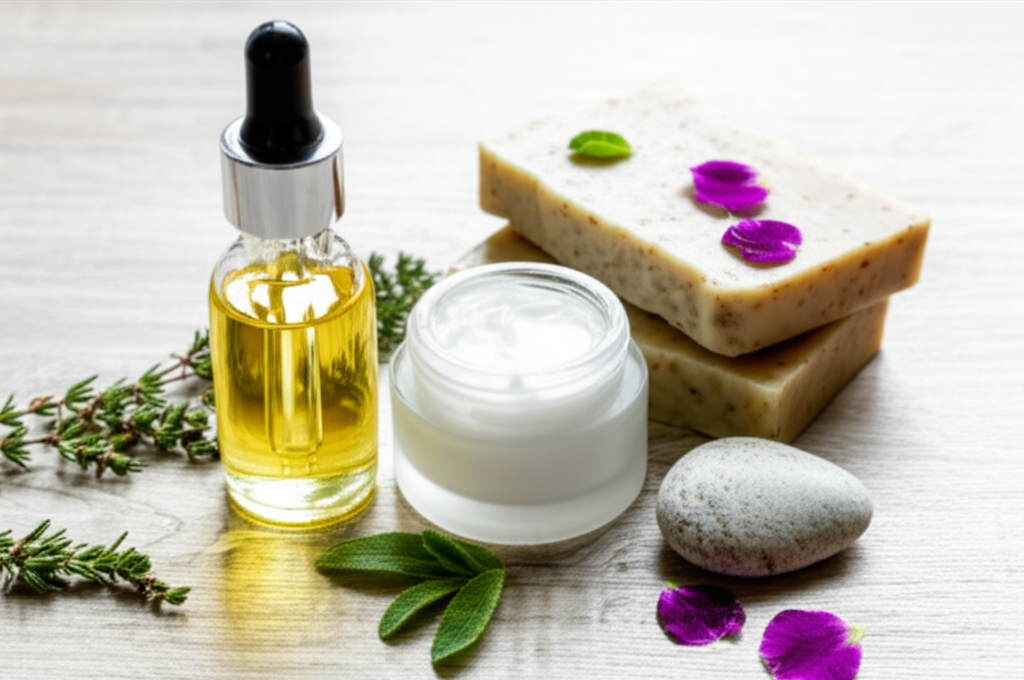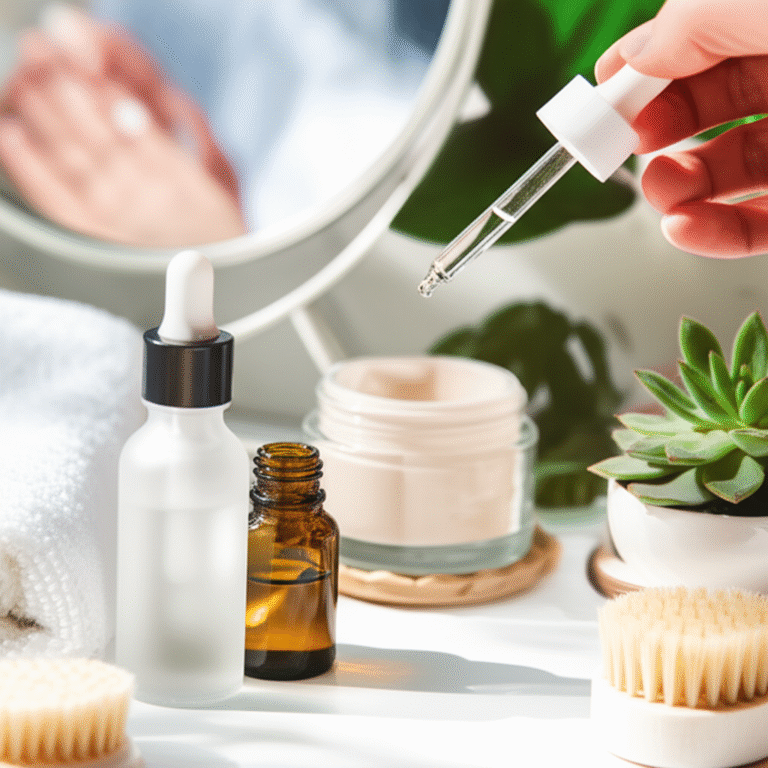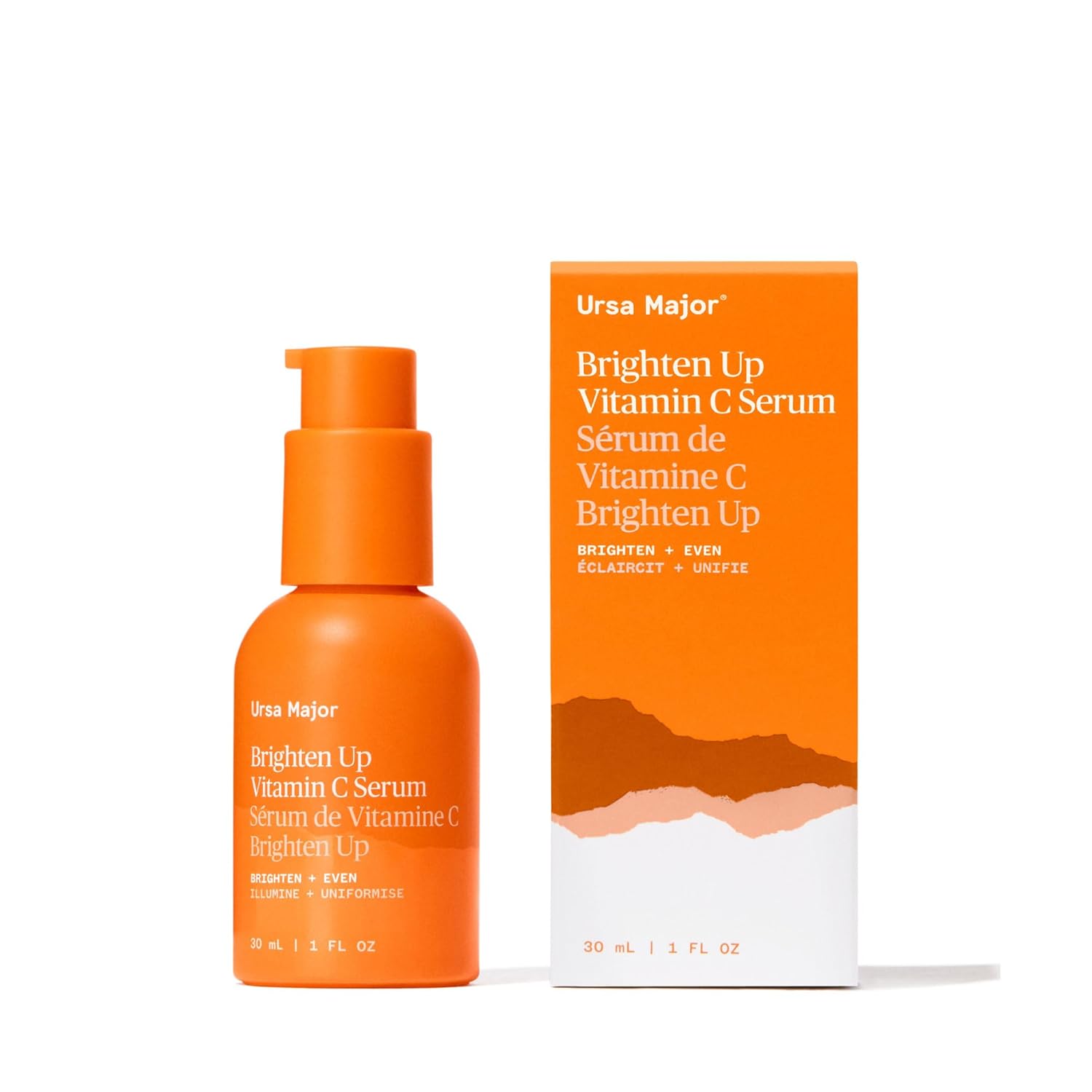Artisan Skin Care – Unlock radiant skin with artisan natural essentials! Discover how simple, high-quality ingredients can transform your routine for a healthy, glowing complexion. Easy, effective, and beginner-friendly.
Feeling overwhelmed by endless skin care aisles and confusing jargon? You’re not alone! Achieving that coveted healthy, glowing skin can feel like a mystery, especially when you’re just starting out. Many of us dream of a clear, vibrant complexion but struggle to find products that truly work without breaking the bank or causing irritation. The good news? You don’t need complicated routines or expensive treatments. Artisan skin care, focusing on pure, natural ingredients, offers a simpler, more effective path to beautiful skin. Let’s dive into the genius of natural essentials that will guide you toward your best skin ever.

ARENCIA Rice Mochi Facial Cleanser
Gift Set – 6 Varieties, 0.52 oz each – Travel Size, Korean Skin Care
- Brand: ARENCIA
- Price: $26.60 $8.39 per ounce
- Shipping to Bangladesh: $495.38
- Skin Type: All, Sensitive
- Scent: Fresh
- Product Benefits: Anti-Acne, Cleansing, Gentle Exfoliation, Makeup Removal
- Item Form: Cream
- Sizes: 0.52 oz each (6 varieties)
What Exactly is Artisan Skin Care?

Artisan skin care is all about quality, intention, and natural goodness. Think of it like a chef carefully selecting the freshest ingredients for a delicious meal. Artisan products are typically made in smaller batches by skilled individuals or small businesses, prioritizing potent, natural components over synthetic fillers. This approach often means using ingredients like botanical extracts, nourishing oils, and mineral-rich clays that are known for their skin-loving properties. It’s a return to basics, focusing on what nature provides to heal, protect, and beautify your skin.
Why Choose Natural Essentials for Beginners?
Starting your skin care journey with natural essentials is a brilliant move, especially for beginners. Here’s why:
- Gentle Formulas: Natural ingredients are often less likely to cause irritation or allergic reactions compared to many synthetic chemicals found in mass-produced products. This is crucial for sensitive or new skin.
- Potent Benefits: Nature offers a powerful array of vitamins, antioxidants, and essential fatty acids that directly benefit skin health, targeting concerns like dryness, dullness, and even early signs of aging.
- Transparency: Artisan brands are usually very open about their ingredient lists. You can easily understand what you’re putting on your skin, empowering you to make informed choices.
- Eco-Friendly: Many artisan brands are committed to sustainable practices, from ingredient sourcing to packaging, meaning you can feel good about your purchase for your skin and the planet.
- Simplicity: A focus on natural essentials encourages a streamlined routine, making it easier for beginners to follow and understand.
Your Beginner’s Guide to Artisan Natural Essentials
Ready to embrace the world of artisan skin care? Let’s break down the essential steps and the natural ingredients that will become your best friends.
Step 1: Cleanse Gently
Cleansing is the foundation of any good skin care routine. It removes dirt, oil, and impurities without stripping your skin of its natural moisture. For beginners, a gentle, natural cleanser is key.
Essential Natural Cleanser Ingredients:
- Plant-Based Oils (e.g., Jojoba, Sweet Almond, Olive Oil): These oils are excellent at dissolving surface oils and makeup without clogging pores. Jojoba oil, in particular, closely mimics the skin’s natural sebum.
- Glycerin: A humectant, meaning it draws moisture into the skin, keeping it hydrated during cleansing.
- Gentle Surfactants (from Coconut or Sugar): Naturally derived foaming agents that effectively cleanse without harshness.
Look for cleansers labeled as “gentle,” “hydrating,” or “balancing.” Avoid anything with sulfates (like Sodium Lauryl Sulfate or Sodium Laureth Sulfate), artificial fragrances, or harsh alcohols, which can strip and irritate your skin.
Step 2: Tone and Balance
A toner can help remove any lingering cleanser residue, balance your skin’s pH level, and prepare it to better absorb subsequent products. Natural toners often have a refreshing feel.
Essential Natural Toner Ingredients:
- Floral Hydrosols (e.g., Rosewater, Lavender Water): These result from the distillation of plants and offer gentle toning and calming properties. Rosewater is fantastic for soothing and hydrating, while lavender can help calm redness.
- Witch Hazel (Alcohol-Free): A natural astringent that can help tighten pores and reduce inflammation without drying out the skin. Ensure it’s alcohol-free to avoid irritation.
- Aloe Vera: Known for its soothing and healing properties, aloe vera juice can hydrate and calm the skin.
A good natural toner will leave your skin feeling refreshed and comfortable, not tight or dry. Spritzing it onto a cotton pad or directly onto your freshly cleansed face works well.

Step 3: Treat and Nourish (Serums/Facial Oils)
This is where the real magic of natural ingredients shines. Serums and facial oils are concentrated treatments designed to deliver potent benefits directly to your skin.
Essential Natural Serum/Facial Oil Ingredients:
The type of oil or serum you choose can depend on your skin type, but here are some universally beneficial natural stars:
- Rosehip Seed Oil: Rich in Vitamin A (retinoic acid) and Vitamin C, it’s excellent for cell regeneration, reducing the appearance of scars, fine lines, and improving skin tone.
- Argan Oil: Packed with Vitamin E, fatty acids, and antioxidants, it’s incredibly nourishing for dry skin and helps protect against environmental damage.
- Jojoba Oil: As mentioned before, its similarity to skin’s natural sebum makes it suitable for all skin types, helping to balance oil production and moisturize.
- Vitamin C (from sources like Kakadu Plum or Ascorbic Acid): A powerful antioxidant that brightens skin, reduces dark spots, and boosts collagen production for firmer skin.
- Hyaluronic Acid (often plant-derived): A humectant that draws moisture from the air into your skin, plumping it up and reducing the appearance of fine lines.
For beginners, starting with a single, high-quality facial oil or a simple serum with a few key ingredients is a great approach. Apply a few drops and gently pat it into your skin.
Step 4: Moisturize
Moisturizing seals in all the goodness from your previous steps and provides essential hydration to keep your skin supple and protected. Natural moisturizers often rely on rich plant butters and oils.
Essential Natural Moisturizer Ingredients:
- Shea Butter: Deeply moisturizing and rich in vitamins and fatty acids, it helps soften and condition the skin.
- Cocoa Butter: Another emollient butter that deeply hydrates and helps improve skin elasticity.
- Plant Oils (like those mentioned above): Form the base of many natural moisturizers, providing essential nourishment.
- Beeswax: Acts as a natural occlusive, helping to lock in moisture and protect the skin barrier.
Choose a formula that feels comfortable for your skin type – a lighter oil-based moisturizer for oily or combination skin, and a richer butter-based cream for dry or mature skin.
Step 5: Protect with SPF (Non-Negotiable!)
Sun protection is arguably the most important step for maintaining healthy, youthful-looking skin. While not always strictly “artisan” in the same handmade sense, mineral sunscreens are the natural-based champions here.
Essential Mineral SPF Ingredients:
- Zinc Oxide: A physical blocker that sits on top of the skin to reflect UV rays. It’s generally well-tolerated by sensitive skin.
- Titanium Dioxide: Another mineral sunscreen ingredient that acts as a physical barrier.
Look for broad-spectrum mineral sunscreens with at least SPF 30. They are often formulated with skin-soothing ingredients and are a fantastic natural option for daily protection.
Understanding Your Skin Type with Natural Essentials
Knowing your skin type helps you select the most effective natural ingredients. Here’s a simple breakdown:
| Skin Type | Characteristics | Recommended Natural Ingredients | What to Avoid |
|---|---|---|---|
| Oily | Shiny, prone to breakouts, visible pores | Jojoba Oil, Grapeseed Oil, Willow Bark Extract (for exfoliation), Kaolin Clay | Heavy oils (like Coconut Oil or Cocoa Butter), rich creams |
| Dry | Tight, flaky, rough texture, may appear dull | Shea Butter, Argan Oil, Rosehip Oil, Squalane (plant-derived), Honey | Alcohol-based toners, harsh soaps, astringents |
| Combination | Oily T-zone (forehead, nose, chin), normal to dry cheeks | Jojoba Oil (use sparingly on T-zone), Rosewater, Hyaluronic Acid, Tea Tree Oil (diluted, for blemishes) | Overly rich products on oily areas, overly drying products on dry areas |
| Normal | Balanced, not too oily or too dry, smooth texture | Most natural oils (Sweet Almond, Apricot Kernel), Rosehip Oil, Aloe Vera | Extremes – overly stripping or overly occlusive products |
| Sensitive | Reacts easily to products, prone to redness and irritation | Chamomile, Calendula, Aloe Vera, Oat Extract, Jojoba Oil (patch test recommended) | Fragrances, essential oils (test first), sulfates, alcohol, physical exfoliants with large particles |
A great resource for understanding skin health and ingredient impacts is the U.S. Department of Health & Human Services at nih.gov, offering extensive information on health and wellness.
Artisan vs. Conventional Skin Care: A Quick Comparison
When you’re starting out, it helps to see how artisan choices stack up against more common options.
| Feature | Artisan Natural Skin Care | Conventional Skin Care |
|---|---|---|
| Batch Size | Small, often handmade or small-scale production | Large-scale, mass-produced |
| Ingredient Focus | Natural, organic, high-quality botanicals, pure oils, minimal synthetic additives | Can include synthetic chemicals, preservatives, fragrances, fillers |
| Effectiveness | Often high due to concentrated natural actives | Varies widely; some synthetic ingredients can be very effective but potentially harsher |
| Skin Sensitivity | Generally gentler, lower risk of irritation for many | Higher risk of irritation due to potential allergens and harsh chemicals |
| Price Point | Can be mid to high, reflecting quality ingredients and small-batch production | Wide range, from very affordable drugstore options to luxury |
| Environmental Impact | Often more sustainable sourcing and minimal packaging | Can vary significantly; often higher environmental footprint |
Tips for Incorporating Natural Essentials into Your Routine
Making the switch to artisan natural skin care can be smooth and enjoyable. Here are some practical tips:
- Start Slow: Don’t try to replace your entire routine at once. Introduce one new product at a time (e.g., a new cleanser) to see how your skin reacts.
- Patch Test: Always perform a patch test on a small area of your inner arm or jawline before applying a new product to your whole face, especially if you have sensitive skin.
- Read Labels: Get familiar with ingredient names. Look for recognizable plant-based ingredients and fewer long chemical names you can’t pronounce.
- Listen to Your Skin: Pay attention to how your skin feels. Does it feel hydrated, calm, or irritated? Adjust your routine based on your skin’s individual needs.
- Focus on Key Ingredients: For beginners, focus on mastering a few key natural ingredients that address your primary concerns, like hyaluronic acid for hydration or rosehip oil for brightening.
- Consistency is Key: Natural skin care often shows its best results with consistent, daily use. Stick with your routine for at least 4-6 weeks to see noticeable changes.
DIY Natural Skin Care Boosters (Optional!)
Want to get hands-on? Certain natural ingredients can be used in simple DIY treatments to boost your routine. Always use kitchen-grade or cosmetic-grade ingredients and practice good hygiene.
- Oatmeal Mask for Soothing: Mix finely ground oats (colloidal oatmeal is best) with a little water or plain yogurt for a calming mask that can soothe redness and irritation.
- Honey Mask for Hydration & Antibacterial Benefits: Manuka honey or raw honey applied directly to the skin for 15-20 minutes can provide intense hydration and has natural antibacterial properties, great for occasional breakouts.
- Avocado Mask for Nourishment: Mash ripe avocado for a deeply moisturizing mask, especially beneficial for very dry skin. You can add a drizzle of olive oil or honey.
Remember that homemade concoctions are best used immediately and may not have the shelf-life or preservation of commercially prepared products (like those from reputable dermatologists or skincare experts).
Frequently Asked Questions (FAQ)
Q1: Is artisan skin care really worth the price?
A1: For many, yes! Artisan skin care often uses higher concentrations of effective, pure ingredients and is produced with greater care and attention. This can lead to better results and a more pleasant experience, especially for those with sensitive skin. You’re paying for quality and intention.
Q2: How do I know if a natural ingredient will work for my skin?
A2: The best way is to understand your skin type and research ingredients that suit it. Starting with basic, well-known natural ingredients like jojoba oil, aloe vera, or rosehip oil and patch testing new products is crucial. Websites like the National Institute of Arthritis and Musculoskeletal and Skin Diseases (niams.nih.gov) provide reliable information on skin health.
Q3: Can natural ingredients help with aging?
A3: Absolutely! Many natural ingredients are rich in antioxidants and vitamins that combat signs of aging. Ingredients like Vitamin C (from sources like Kakadu Plum), Vitamin E, Rosehip Seed Oil (for Vitamin A), and Hyaluronic Acid are excellent for brightening, boosting collagen, and improving skin elasticity.
Q4: I have acne-prone skin. Can I use natural oils?
A4: Yes, you can! Not all oils are bad for acne-prone skin. Look for “non-comedogenic” oils – meaning they are less likely to clog pores. Jojoba oil, grapeseed oil, and tea tree oil (used sparingly and diluted) are often well-tolerated and can even help balance oil production and reduce inflammation.
Q5: How long does it take to see results from natural skin care?
A5: Patience is key! While some immediate benefits like hydration can be felt right away, it typically takes 4-6 weeks of consistent use to see more significant changes, such as improvements in skin tone, texture, or reduction in fine lines. Skin cells have a renewal cycle, and giving natural ingredients time to work is important.
Q6: Where can I find reputable artisan skin care brands?
A6: Explore local farmer’s markets, independent boutiques, and online marketplaces that highlight small, ethical businesses. Look for brands that are transparent about their ingredients and manufacturing processes. Reading reviews and checking for certifications (like organic or cruelty-free) can also be helpful.
Achieve Your Glow with Artisan Natural Essentials
Embarking on the journey of artisan skin care is a rewarding experience that connects you with the potency and purity of nature. By focusing on essential, high-quality natural ingredients, you can build a simple yet incredibly effective routine that nurtures your skin from the outside in. Remember to start with gentle cleansing, balance with soothing toners, treat with nourishing oils and serums, and always protect with mineral SPF. Understanding your skin type and patiently applying these principles will unveil your healthiest, most radiant complexion.
Embrace the simplicity, trust the power of nature, and enjoy the beautiful glow that comes from truly caring for your skin with the best artisan essentials. Your skin will thank you!



